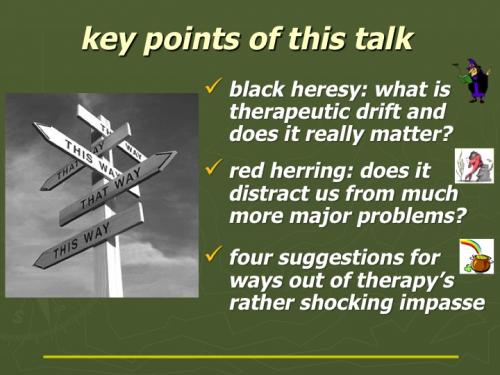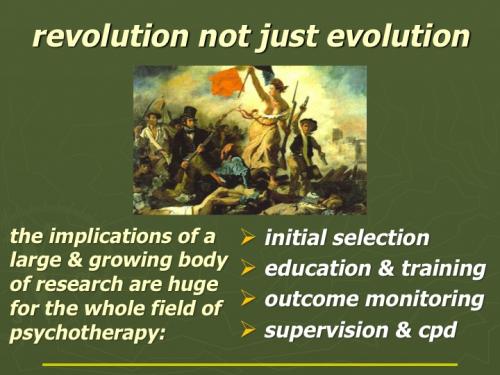Lessons (for therapists) from emerging research on how people develop excellence
Last updated on 28th November 2016
I recently gave a talk entitled "Therapist drift: black heresy or red herring?" where I began by arguing that therapist drift isn't of great importance and rapidly segued into a series of rather more fundamental issues - see the blog posts "Therapist drift: black heresy or red herring - maybe not so important?", "Psychotherapy is helpful but has developed shockingly poorly over the last 30 years" and "Some counsellors & psychotherapists are more effective than others". Also linked to these points are the posts "Using involvement in group discussions for (self-) assessment and learning", "Truly excellent therapists have 'grace under interpersonal pressure' - Fascinating new research" and "Psychotherapists & counsellors who don't monitor their outcomes are at risk of being both incompetent & potentially dangerous". Today's post is the final one in this interlinked cluster - "Lessons (for therapists) from emerging research on how people develop excellence".
You can download the eighteen slides on developing excellence or even the full sixty nine slide talk. As I've pointed out in earlier posts, sadly for psychotherapists (and workers in other fields) simply accumulating more hours of experience doesn't equate to becoming an expert. It's obvious really ... I've been driving for nearly fifty years, but I certainly wouldn't claim that I have progressively - over five decades - become a better & better driver.

So how do we develop excellence in our work and in our lives? Well Leonardo da Vinci is quoted as saying "If people knew how hard I worked to get my mastery, it wouldn't seem so wonderful at all." And research highlights that to develop deep expertise we not only need to work hard & long, we also need to work with intelligence & focus.


There are a series of research studies on these themes. One of the earliest was the widely quoted paper on violinists:

But it's not just hours of practice (remember my fifty years' of driving with little increase in expertise), it's also the focused reviewing, adapting, retrying, reviewing again cycle:

Psychotherapy, sadly like many other fields, doesn't involve clear feedback on whether we're hitting our targets. We are much too like apprentice archers trying to improve our performance while wearing blindfolds. We have very little accurate idea whether our efforts to improve are being successful or not ... hence the blog post "Psychotherapists & counsellors who don't monitor their outcomes are at risk of being both incompetent & potentially dangerous". But improvement is possible, using a better understanding of how expertise develops ... see this early study highlighting possible similarities between "expert psychotherapists" and "expert musicians":


And, by the way fellow 'mature' psychotherapists & other health professionals, we can't rest on our laurels ...

So the message from the literature on the development & maintenance of expertise seems pretty clear. We need to know where we're starting ... for example what is our average effect size with our clients? We need to be monitoring how we're doing client by client compared with predicted outcomes. It makes sense to select specific sub-skills, for example orientation of clients early in therapy and the effect of their expectancy of improvement with the treatment we're offering, or practising & assessing & re-practising responding to actors playing challenging client presentations, or practising & assessing & re-practising how we interact with fellow therapists in group discussions. Then see how this effects our success with our overall goal of improving our client outcomes:


It is shocking how psychotherapy has improved so little in effectiveness over the last four decades, but potentially we're clearer than we've ever been about how we can respond helpfully to this long-term crisis. In so many ways, these are exciting times.


